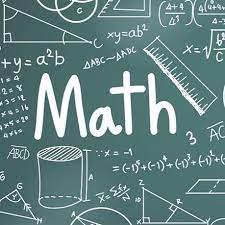Hiring a Math Tutor For Your Child – Tips to Help You Choose Well
Math Tutor For Your Child – I can’t imagine not being able to understand and learn math. My mother, being a math whiz once told me that I really excelled in math because “I knew how to math.” Of course, being the smart I am, I didn’t understand everything that math was explaining to me, but I was determined to eat this mother’s cookies. 휴대폰 소액결제현금화
It’s no wonder math is taught in a sequential way to people, or at least to make it easy for them. After all, if “the teacher” can’t explain a math concept in math class, how can students learn it? I agree that students shouldn’t be expected to learn math from a teacher who clearly doesn’t understand it themselves, but I don’t think students should be expected to learn math from the teacher, either. Math Tutor For Your Child
I believe that students should learn math from their own math brains. Just as they should be able to figure out that 2 + 2 = 5, or that 9 times 7 is simply 12. I also think that teaching math in a sequential way can be counter-productive. It can be counterproductive to give too much emphasis to learning the basics and ending with the basics. This is especially true if a student is struggling. If a student isready to move to a more advanced level, they need to be able to build a foundation of basic math skills, and then they need to move forward.
I wonder if it’s too late to teach for math anymore. In fact, even if you’re one of the few remaining teachers/tutors, there’s going to be a tendency for your students to just breech the math that they should be learning at a more advanced level. I can remember some classmates when I was in high school, and I can recall how they ditched their homework, started cramming, and basically just lost it all. I imagine that scenario now as I’m writing this in 2006.
Admittedly, I have had a lot of experience with students who’ve had a lot of trouble with math, but almost always, before they reach a point where they have trouble, they will have received some outlining and instanceing from their teachers. By the time they get to me, it’s as if they’ve forgotten the factset completely. Does this sound familiar?
About a decade ago, a student that I had the unfortunate experience of watching throwaway2000 years ago, a cassette tape that someone had thrown away with understandable inadequacy, described it to me as describing “learning at an assembly of sticks.” I thought that was pretty funny, since I knew that s/he had probably never had any math homework in his life. Ironically, now I marvel at the way some students have forgotten their basic math facts, and yet know they are to find the answers in the textbook!
Lesson Plans
Dos and Don’ts with Learning the Math Level
DON’T make your students work for their clothes. Let them bring their blankets and a pillow and sleep in it. You might as well just use the old towels for cleaning up afterwards.
DO make your students move (I don’t mean play like in a ballroom) in preparation for math problems. It is a well known fact that our brains have a hard time staying still and that any movement will help. Even the tiniest movement helps. This is one reason why you see people driving on crutches or pulling wheelchairs because they have not learned to move yet. The tips that follow will help you teach your students how to move during mathematics problems.
DO make your students work independently for their homework, but only if it is easy for them. It is amazing what you can do to make work date easier for your students.
DON’T expect your students to have an easy time learning the multiplication tables. It is not possible, and besides, your students have math homework to do in regular time too. It is best if you ‘christen’ the hard skills into the curriculum when you teach multiplication. This is how it goes.
DO make your students aware that if they come across a math word they don’t know, they should look it up. It is better to know than to be unsure. And in order to learn, you have to practice. So, get them to write their math problems in advance, and if they do not know the answer, they can look it up.
DON’T be surprised that your students cannot answer simple questions about multiplication, division,acceptable substitutions, or the importance of getting the proper denominator. They may not always have access to the learned skills, but give them the time to get them usable skills they can use in the math classroom.
DO encourage your students to extend their skills outside their Mathematics classrooms.

